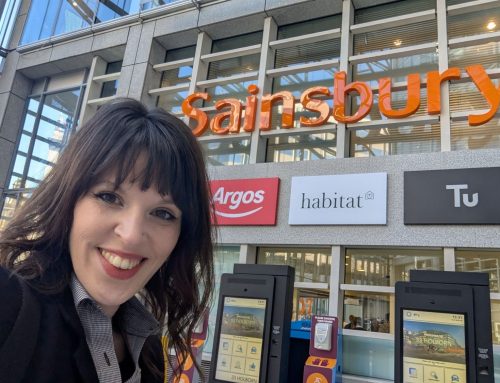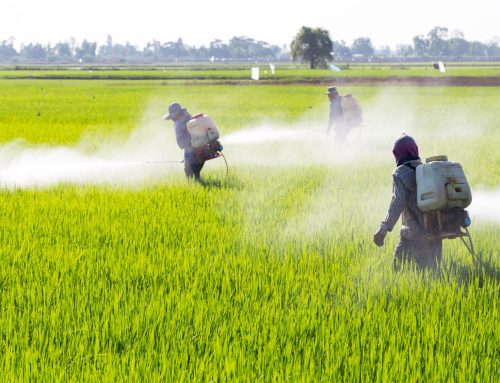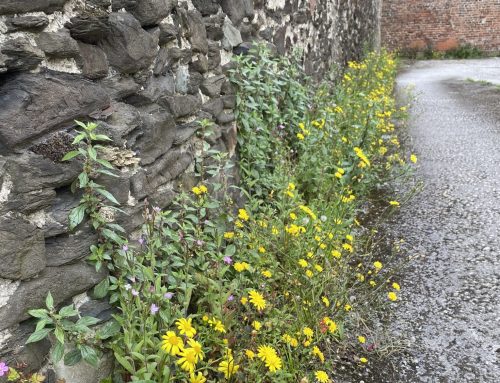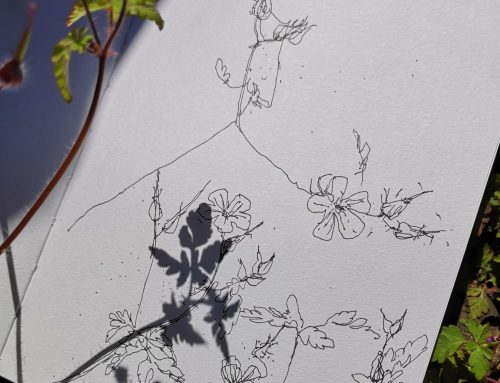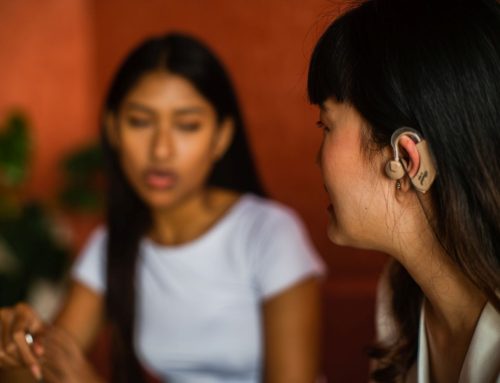The second of Atalo Belay’s reflections on ten years of tackling hazardous pesticide use on smallholder cotton farms in Southern Ethiopia
Read the first part ‘The pioneers’ here.
A reason to believe
It was difficult to get farmers to believe in the project at first. After years of using pesticides, the new food spray method created a lot of suspicion. There was a misunderstanding that the spray killed pests and questions about why this cheap, maize-based insecticide had been ‘hidden from them’ by the government. But even though they were sceptical about the method, farmers were keen to come to training to see if there were changes in crop growth and pest numbers. We began to get the impression that farmers may be coming along in order to prove us wrong…
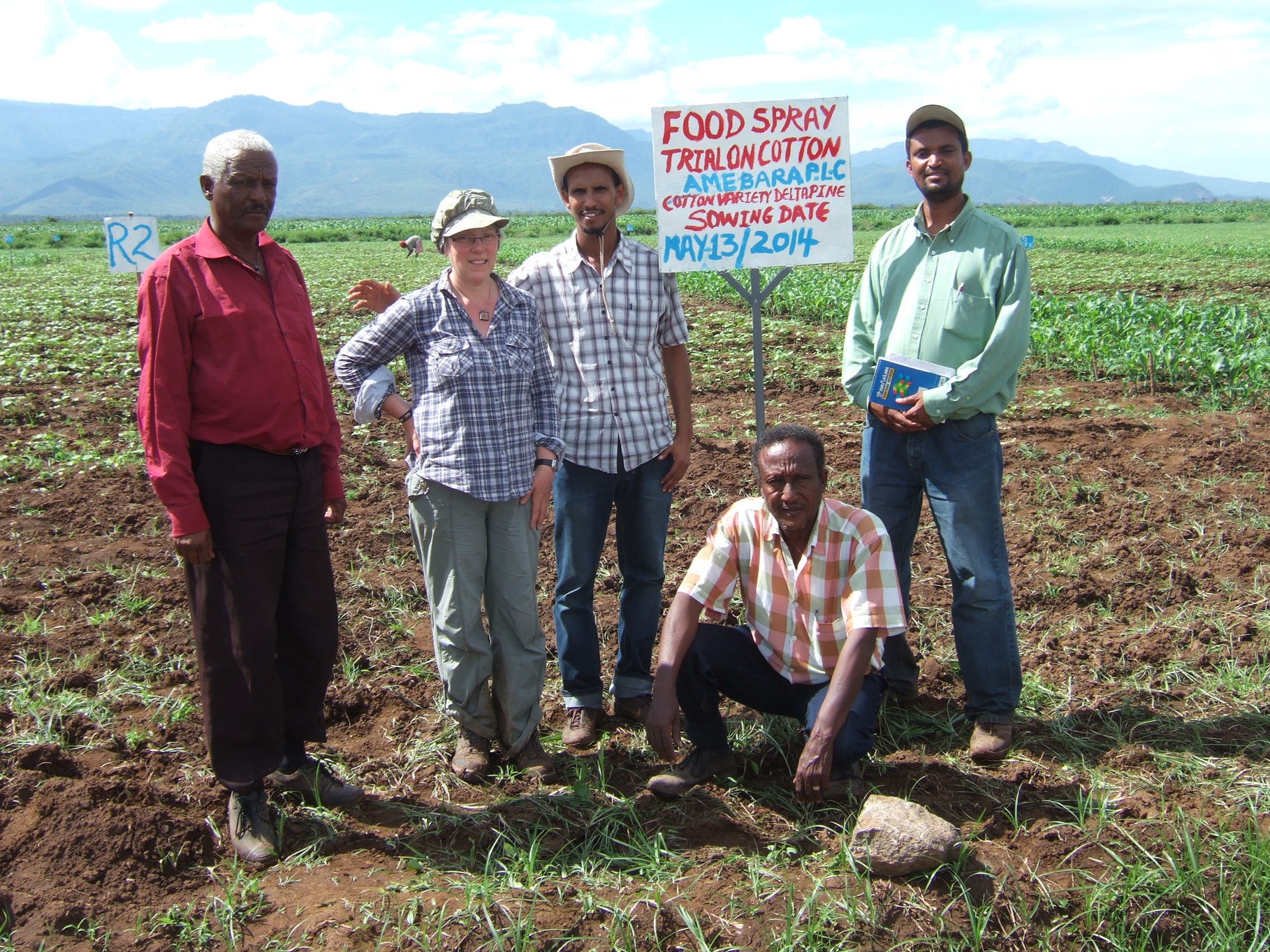
Left to right: Tesfaye Gebre, Stephanie Williamson, Atalo Belay, Bazezew Gebremariam and Mulualem Mersha. Setting up PAN Ethiopia’s first food spray trials in 2013. Credit PAN UK.
Field officers were visiting the cotton trial fields every three days for regular pest and natural enemy monitoring, and to learn which insect fed on which pest and which were farmers’ friends and which were farmers’ enemies. The challenge was proving to farmers that not all insects were bad and that instead of killing all insects with pesticides, some beneficial insects could help keep pests in balance. Farmers would ask “What if I lose my crop?” We couldn’t gamble on their livelihoods and had to prove first that the food spray method works. The success of the demonstration plots was incredibly important. Field agents were also working closely with a handful of farmers who believed in the project as they would pass the positive message on to their colleagues and communities.
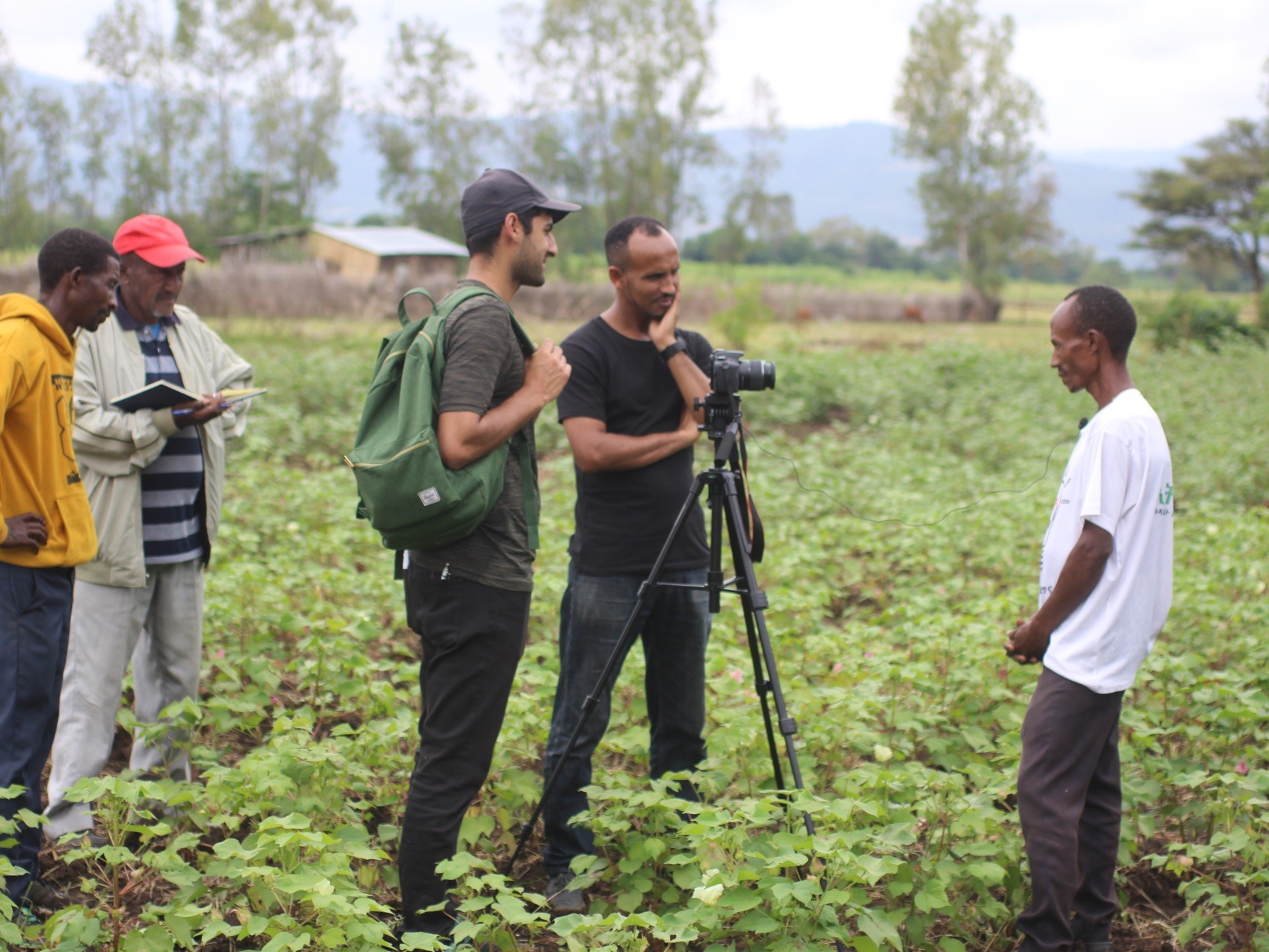
Filming with lead farmer, Mathios Mecho, who is successfully growing cotton without pesticides, in order to share learnings with fellow farmers. Credit PAN UK.
The hard work pays off in the end
The dedication and hard work of our field agents, who would wake up early every morning to drive on motorbikes to demo plots up to 45kms away, eventually paid off. Farmers are now growing cotton in the region with zero pesticide use. We no longer just focus on pest management, but are also working to improve other agronomic practices. Farmers’ yields were previously low, but with training on good cultural practices, we’ve supported farmers to get a 30% increase in yields in some cases. Farmers thought that wide plant spacing and long crop duration was best, but we’ve shown the opposite. We’ve expanded from demo plots in just 3 villages and have now reached 22 villages and over 8,500 farmers with our technical support.
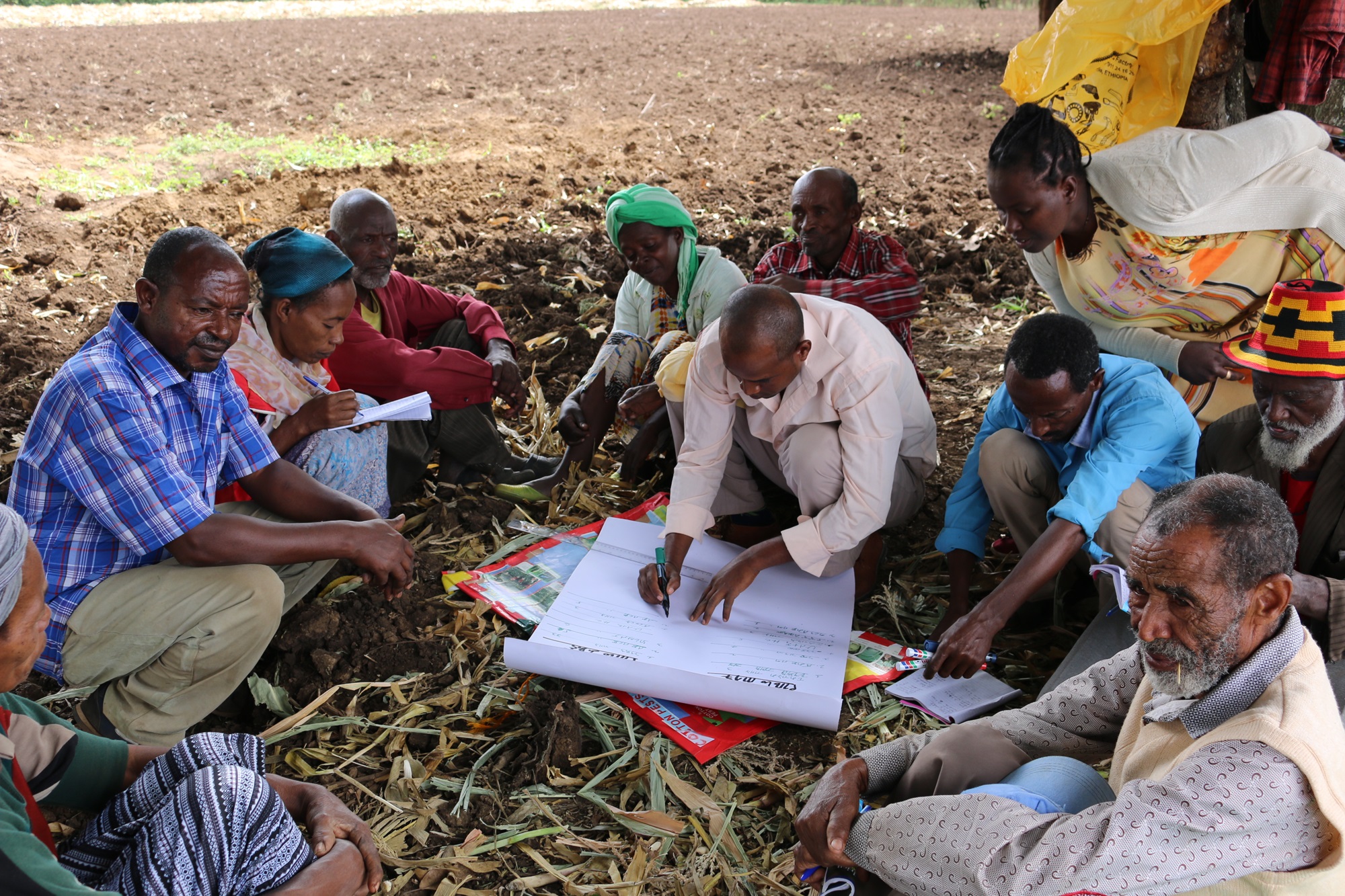
Smallholder cotton farmers learning IPM at a Farmer Field School in Ethiopia’s Southern Rift Valley. Credit PAN UK.
In 2017, we set up the first cotton co-operative and have now set up a further five, helping them to obtain a higher price for their cotton crop and it puts farmers in a better position to negotiate prices with local traders. Two hundred farmers have been certified organic, the first in the country!
Personally, I am so proud of our team and their committed work, travelling hundreds of kilometres by motorbike on a daily basis to facilitate Farmer Field School sessions and to support farmers in the field throughout the year. I have learned so much in terms of critical assessment skills, project management and reporting as a result of being involved in this project. I now give IPM training in other regions, present our experiences at Ministry meetings and have even travelled to India to provide training on the food spray method. The team has also started to trial the food spray and other IPM methods in growing vegetables. I’m excited to see this progress.
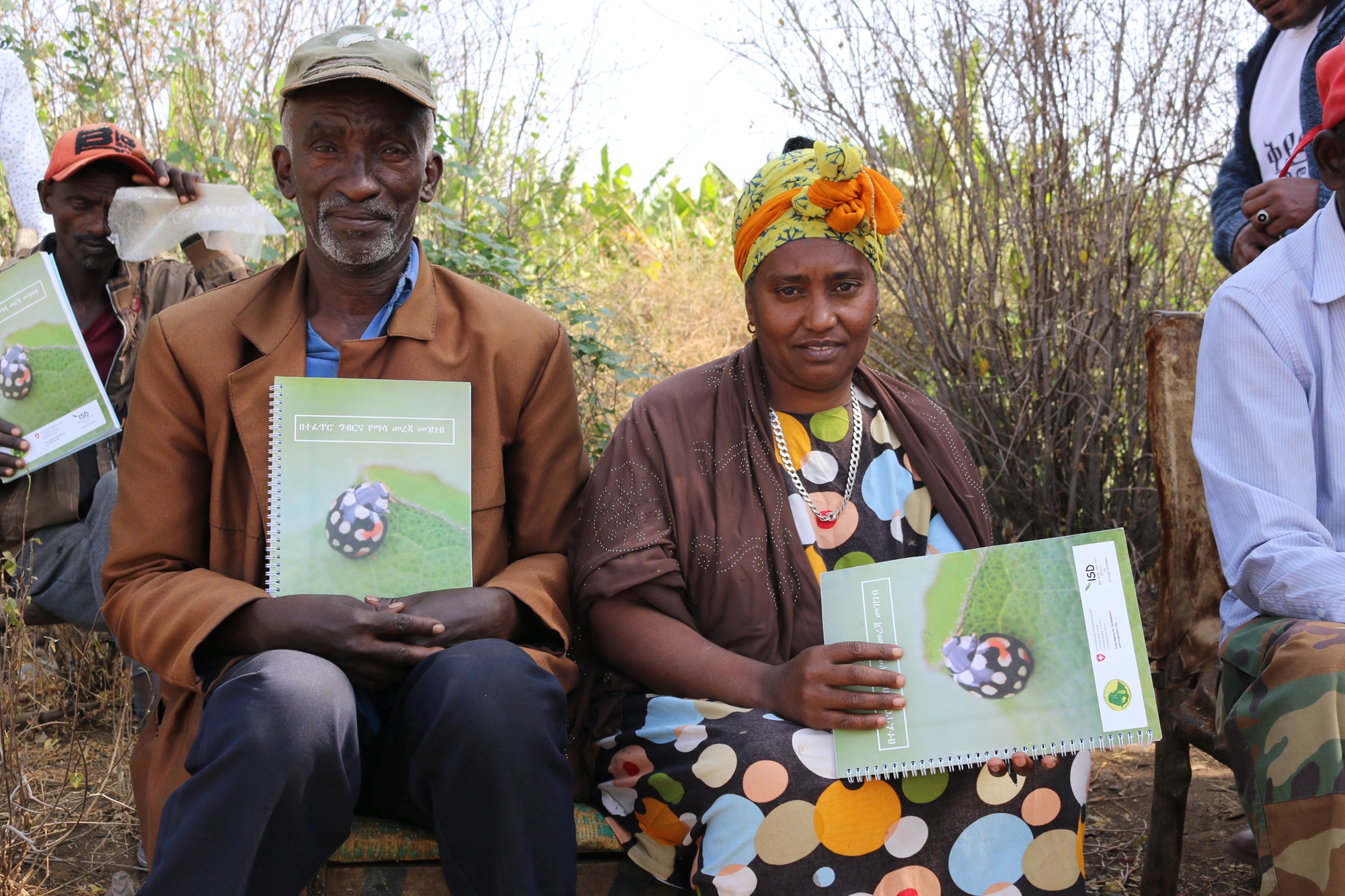
Farmers learning to grow onions using similar IPM methods that have been trialled in the cotton fields. Credit PAN UK.
Read the final part of Atalo’s reflections ‘hope for the future’ here.
This project is funded by Traid, a UK registered charity working to tackle the environmental and social impacts of producing, consuming and using clothes.
Atalo Belay is an applied entomologist by training and is Program Co-ordinator at PAN Ethiopia. He helps run and contributes to the varied IPM projects implemented by PAN Ethiopia around the country. He also provides IPM training for farmers, agriculture extension officers, women and youth groups engaged in agriculture.
Read more about our work with cotton farmers in Ethiopia here.

